
Northern Illinois Birder Ruddy Ground Dove & Mourning Dove
Village of Oak Creek, Arizona, 2013. mourning dove stock pictures, royalty-free photos & images. Homing Pigeon White Dove Bird. White dove homing pigeon birds - or release doves - a breed of Rock Dove, are used for ceremonial release. Release doves are used to commemorate important milestones in life. They represent offerings of hope at.

Bird Feature Mourning Dove
Mourning doves are native to North America, with a large range of almost 11,000,000 km2 (4,200,000 sq mi).They live in southern Canada, the southwestern US, the Greater Antilles, the Atlantic archipelago of Bermuda, south-central Mexico, and Panama.They were introduced to Hawaii in 1963. The birds live in open and semi-open habitats, including urban and suburban neighborhoods, prairie.
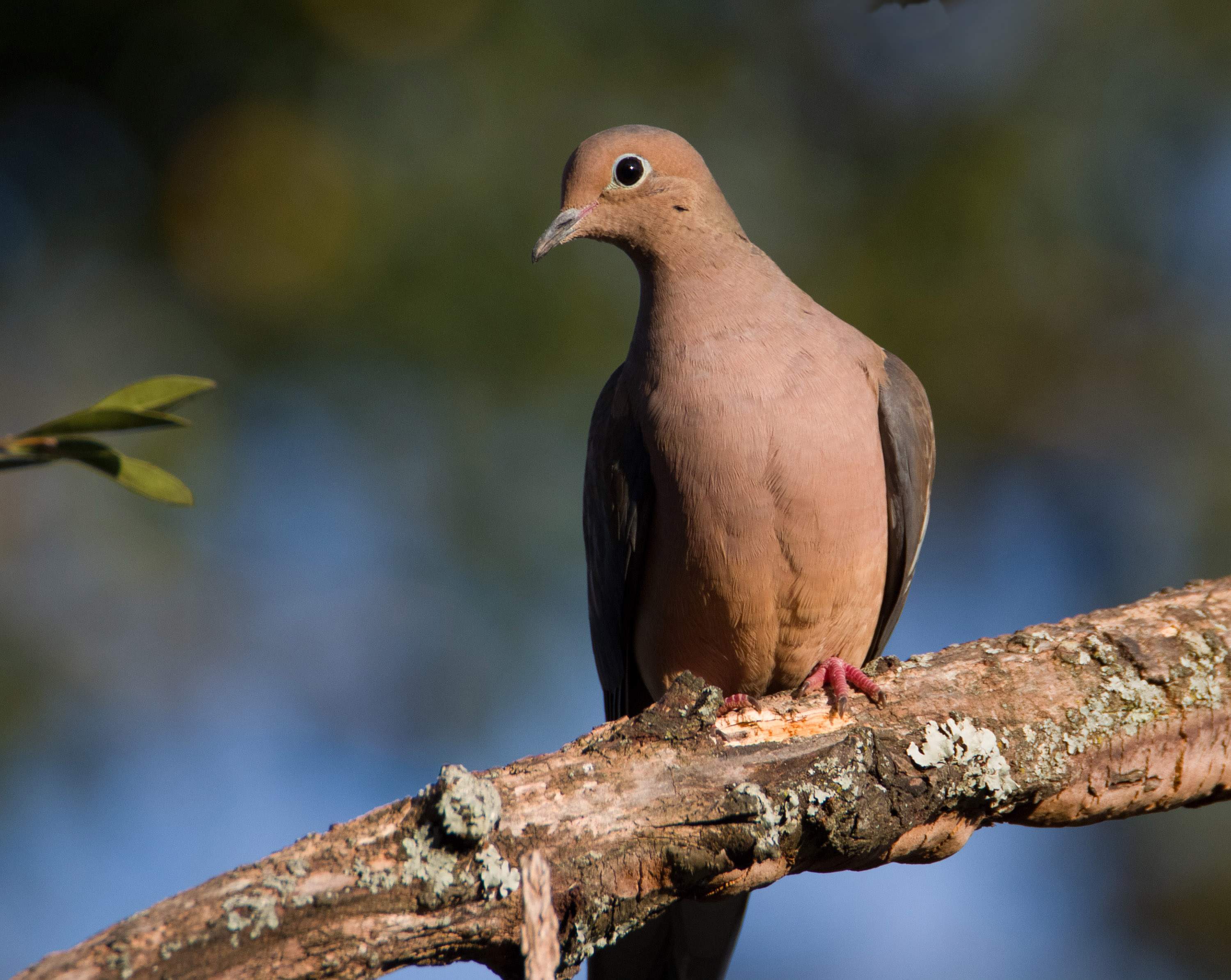
Mourning Dove Alabama Birding Trails
14.2-15. cm inch. The Mourning dove ( Zenaida macroura) is one of the most abundant and widespread of all North American birds. It is also one of the most popular gamebird, with more than 20 million birds (up to 70 million in some years) shot annually in the U.S., both for sport and meat. Its ability to sustain its population under such.

Mourning doves bring enjoyment, recreation Mississippi State
The mourning dove (Zenaida macroura) is a member of the dove family, Columbidae.The bird is also known as the American mourning dove, the rain dove, colloquially as the turtle dove, and it was once known as the Carolina pigeon and Carolina turtledove. It is one of the most abundant and widespread of all North American birds and a popular gamebird, with more than 20 million birds (up to 70.
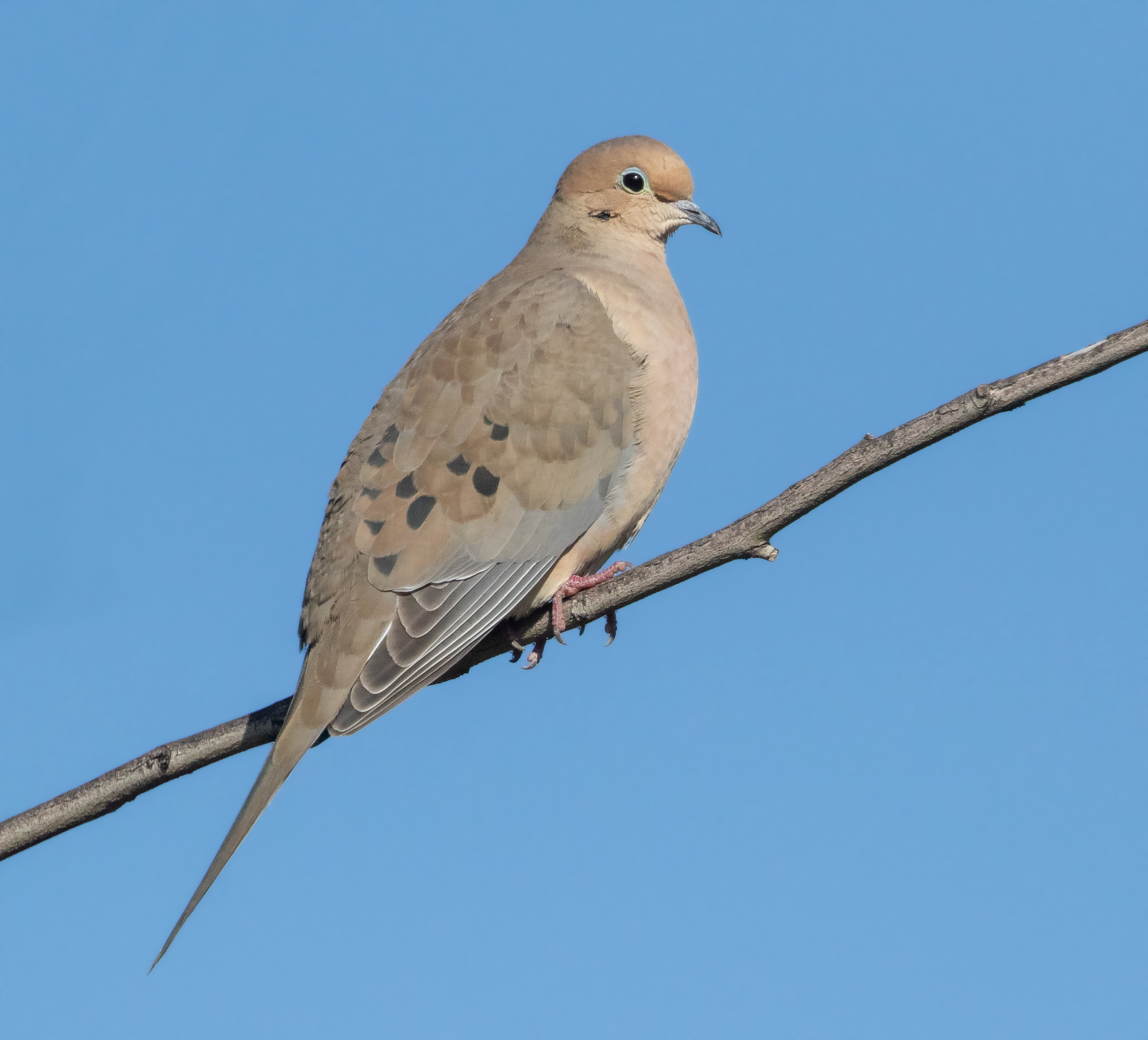
Mourning Dove San Diego Bird Spot
Browse 473 american mourning dove photos and images available, or start a new search to explore more photos and images. Browse Getty Images' premium collection of high-quality, authentic American Mourning Dove stock photos, royalty-free images, and pictures.
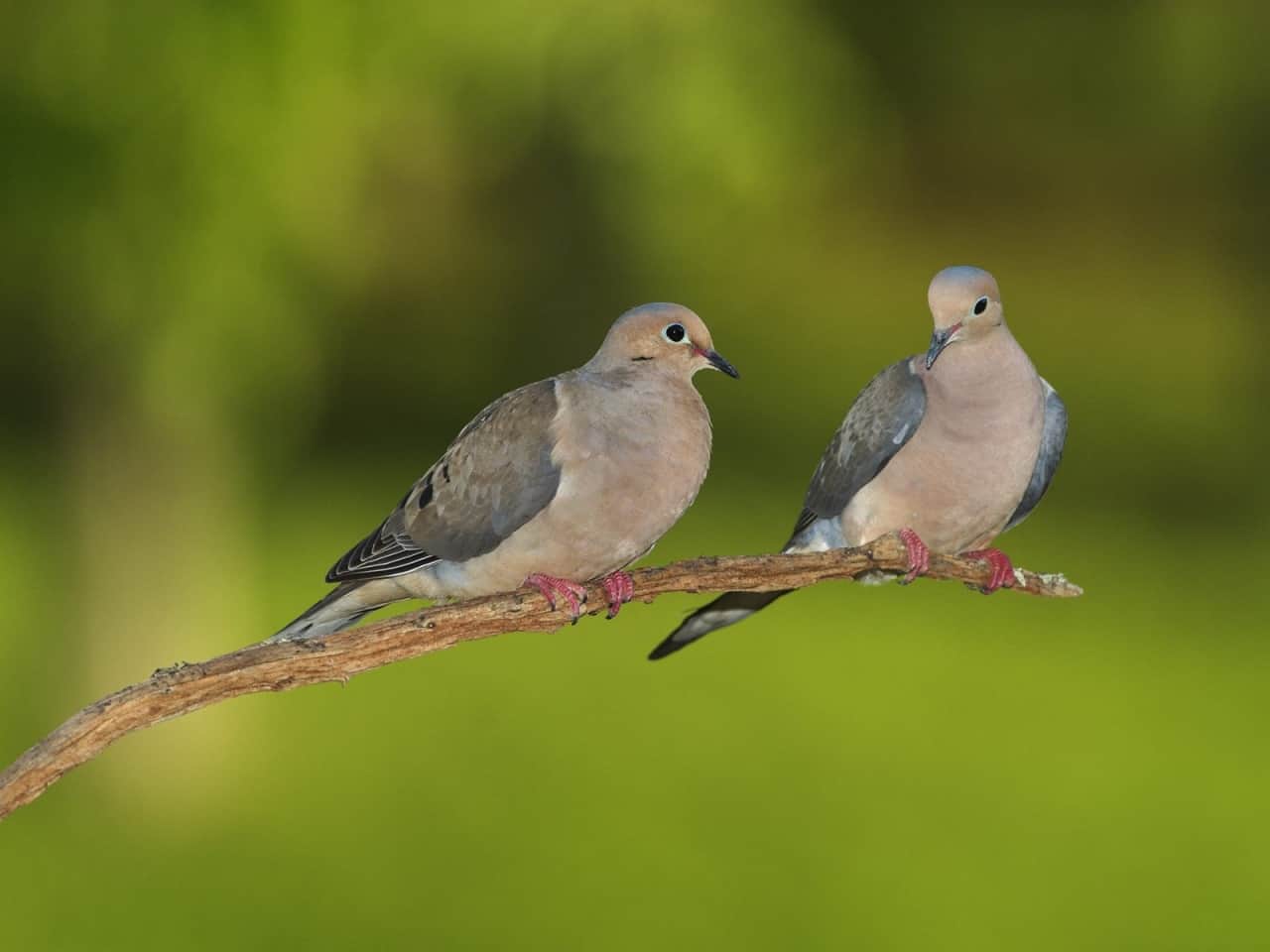
Mourning Dove Indiana Audubon
A graceful, slender-tailed, small-headed dove that's common across the continent. Mourning Doves perch on telephone wires and forage for seeds on the ground; their flight is fast and bullet straight. Their soft, drawn-out calls sound like laments. When taking off, their wings make a sharp whistling or whinnying. Mourning Doves are the most frequently hunted species in North America.
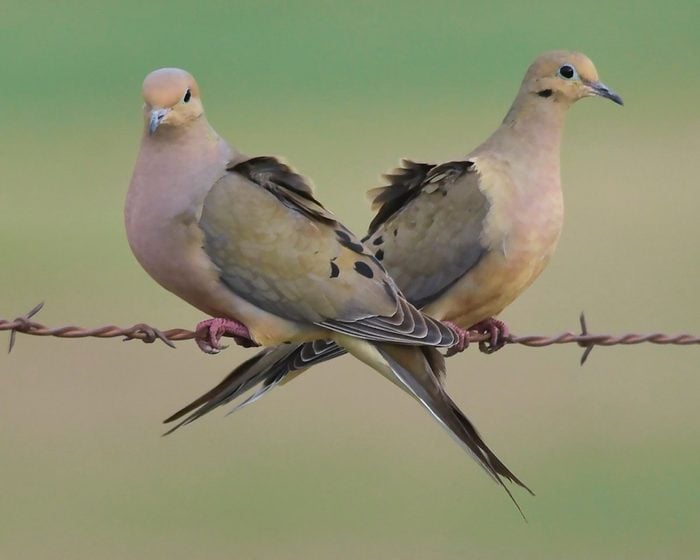
25 Breathtaking Mourning Dove Pictures Birds and Blooms
Ready to Fly. "These two baby mourning doves are only 3 weeks old. They were born in a nest under my deck," says Jean Field. "Mama and Daddy dove set them to flight a week before. Exactly one week later they returned and spent the afternoon perched on the rail.". Learn the five stages of a baby bird's life.
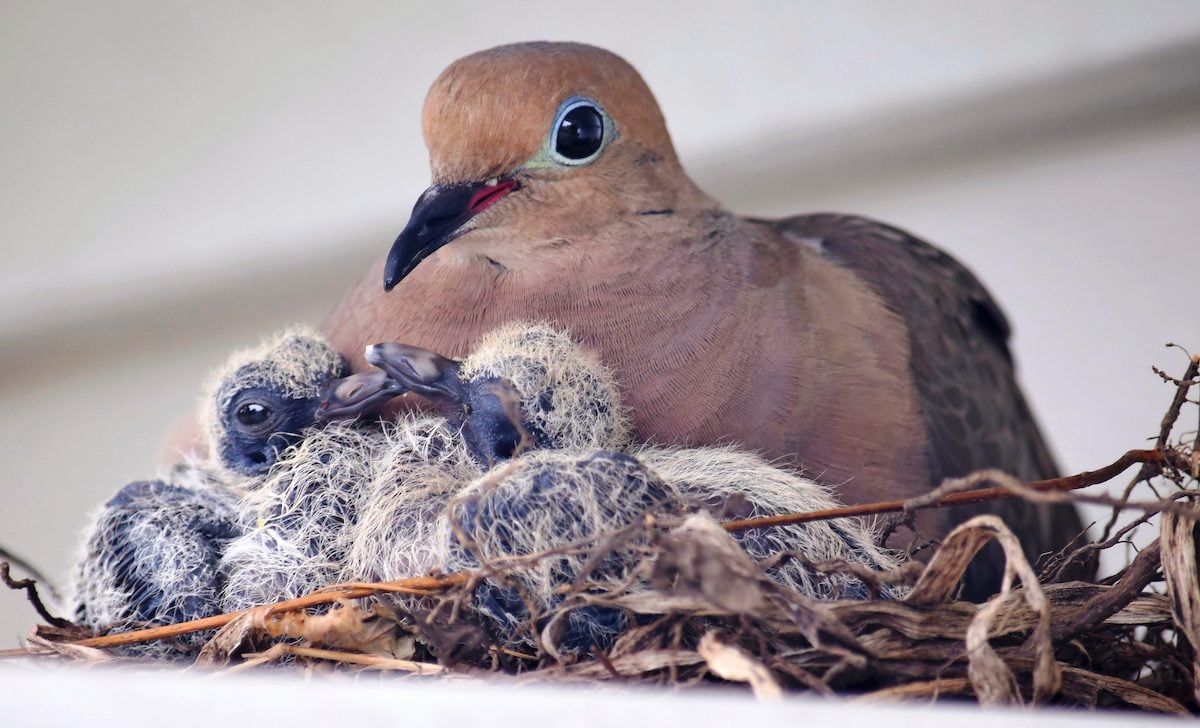
15 Breathtaking Photos of Mourning Doves Birds and Blooms
Avoids unbroken forest. The mournful cooing of the Mourning Dove is one of our most familiar bird sounds. From southern Canada to central Mexico, this is one of our most common birds, often abundant in open country and along roadsides. European settlement of the continent, with its opening of the forest, probably helped this species to increase.
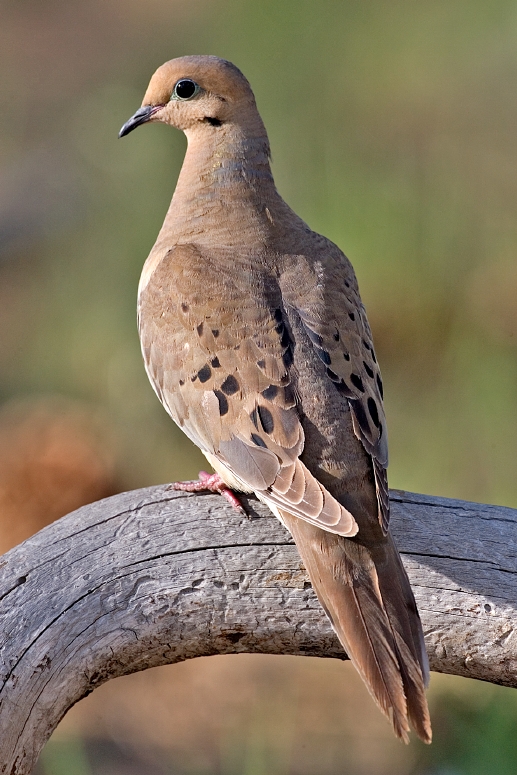
Mourning dove Wikipedia
Ready to Fly. "These two baby mourning doves are only 3 weeks old. They were born in a nest under my deck," says Jean Field. "Mama and Daddy dove set them to flight a week before. Exactly one week later they returned and spent the afternoon perched on the rail.". Learn the five stages of a baby bird's life.
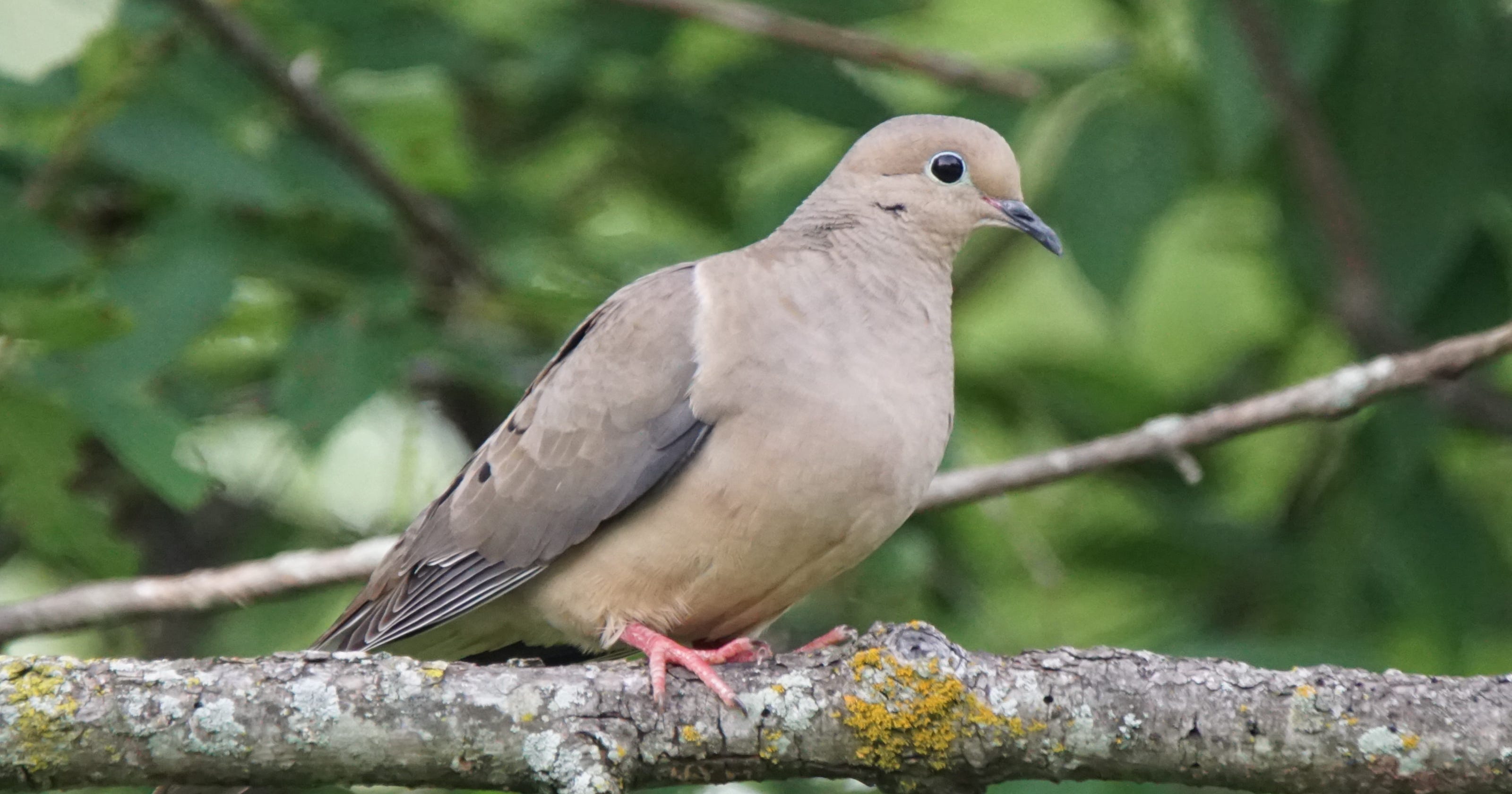
Bird of the Month Mourning dove
Previous123456Next. Download and use 700+ Mourning Dove stock photos for free. Thousands of new images every day Completely Free to Use High-quality videos and images from Pexels.
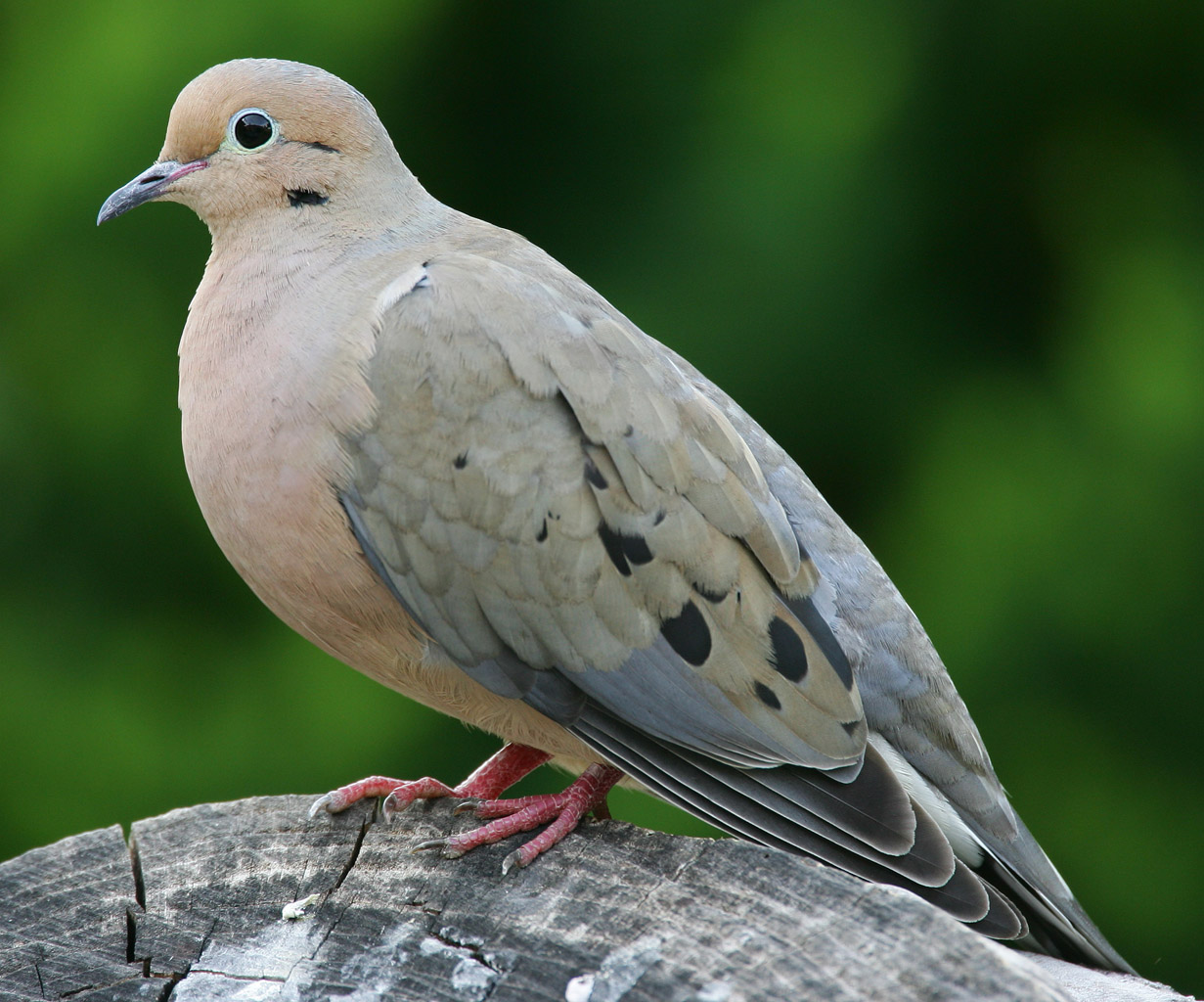
Earth and Space News American Mourning Dove Habitats Gray Body
Mourning Dove Information. Length: 12" Habitat: Open woodlands, forest edges, forest clearings, farmland, orchards, fields, roadsides, parks, residential areas. Prefers habitat with some open areas for foraging and some trees or shrubs for nesting and roosting.
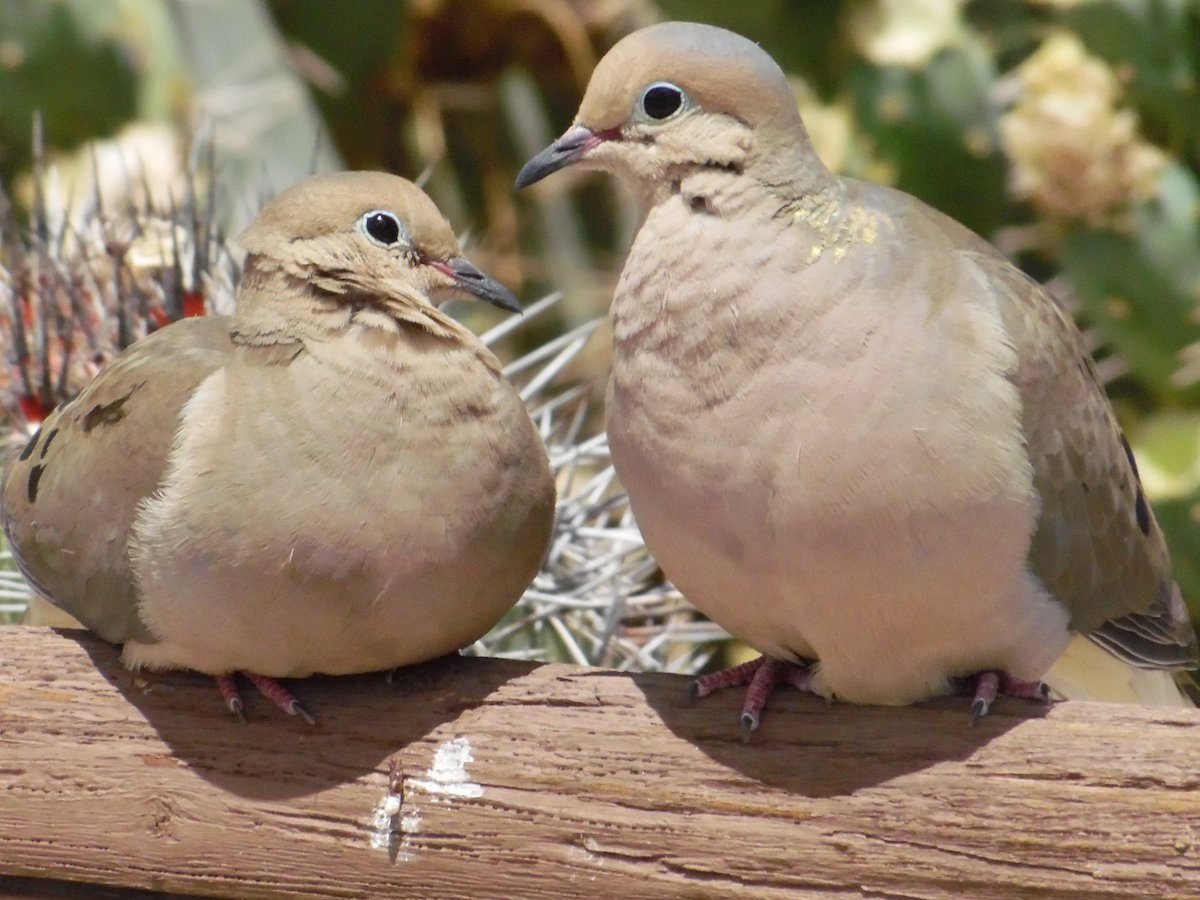
13 Fascinating Facts about Mourning Doves Birds & Blooms
A graceful, slender-tailed, small-headed dove that's common across the continent. Mourning Doves perch on telephone wires and forage for seeds on the ground; their flight is fast and bullet straight. Their soft, drawn-out calls sound like laments. When taking off, their wings make a sharp whistling or whinnying. Mourning Doves are the most frequently hunted species in North America.

Mourning Dove Call Nest facts Feathers Habitat Lifespan
Mourning doves are medium-size birds with slim bodies, thin necks, and long, tapered tails that enable them to fly up to 55 miles per hour. This bird's head and neck plumage is a muted pinkish.
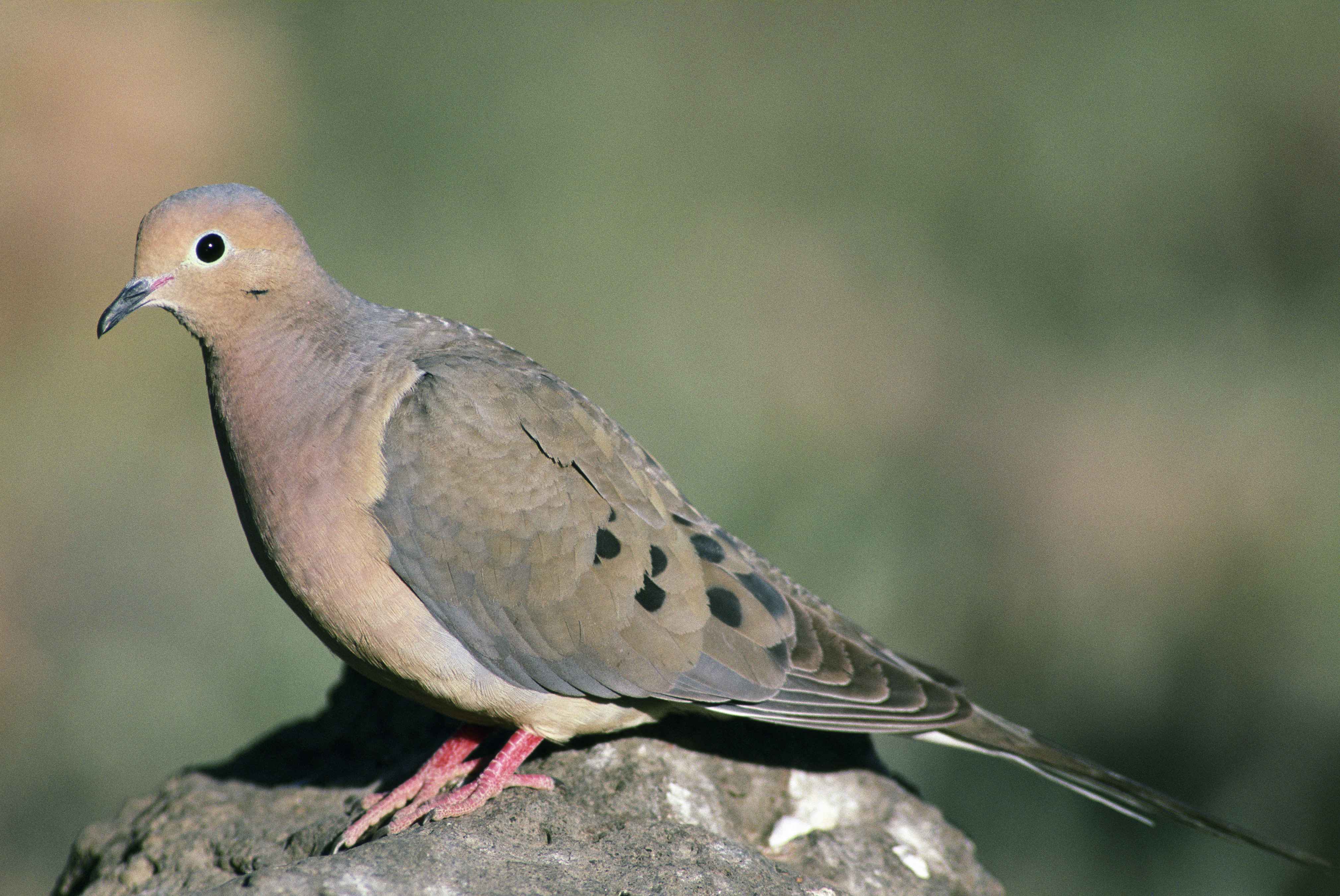
Free picture upclose, mourning, dove, bird, standing, rock, zenaida
Here are some interesting facts about the mourning dove, which may enhance your appreciation of this bird. Don't miss 25 breathtaking mourning dove pictures. What Does a Mourning Dove Eat? Courtesy Jenni Daigle These birds eat seeds, not bugs. Mourning doves are primarily seed-eaters, not insect-eaters. These birds can and do eat weed seeds.
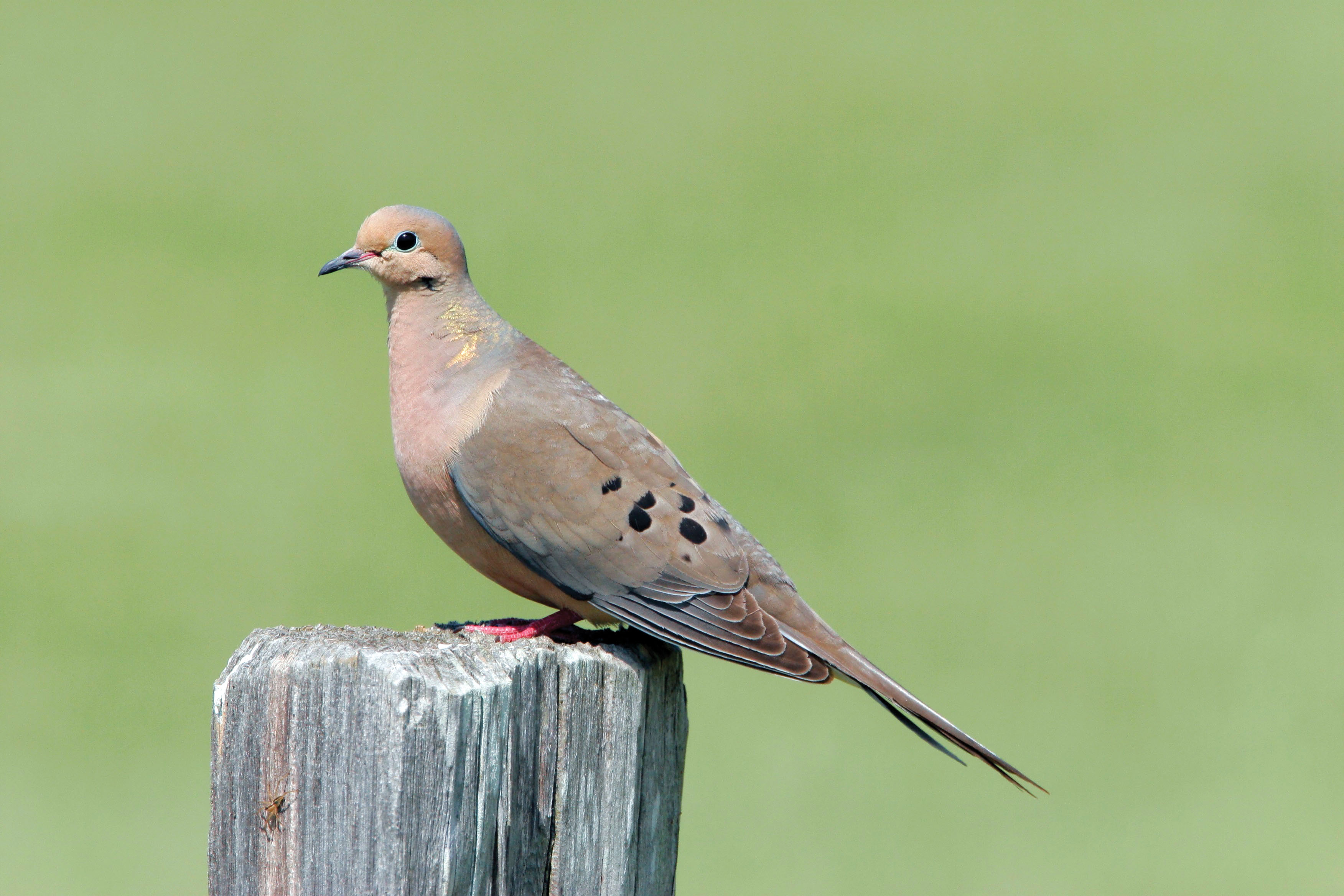
Know Your Doves — Texas Parks & Wildlife Department
Browse 796 authentic mourning dove stock photos, high-res images, and pictures, or explore additional mourning dove nest or mourning dove isolated stock images to find the right photo at the right size and resolution for your project.
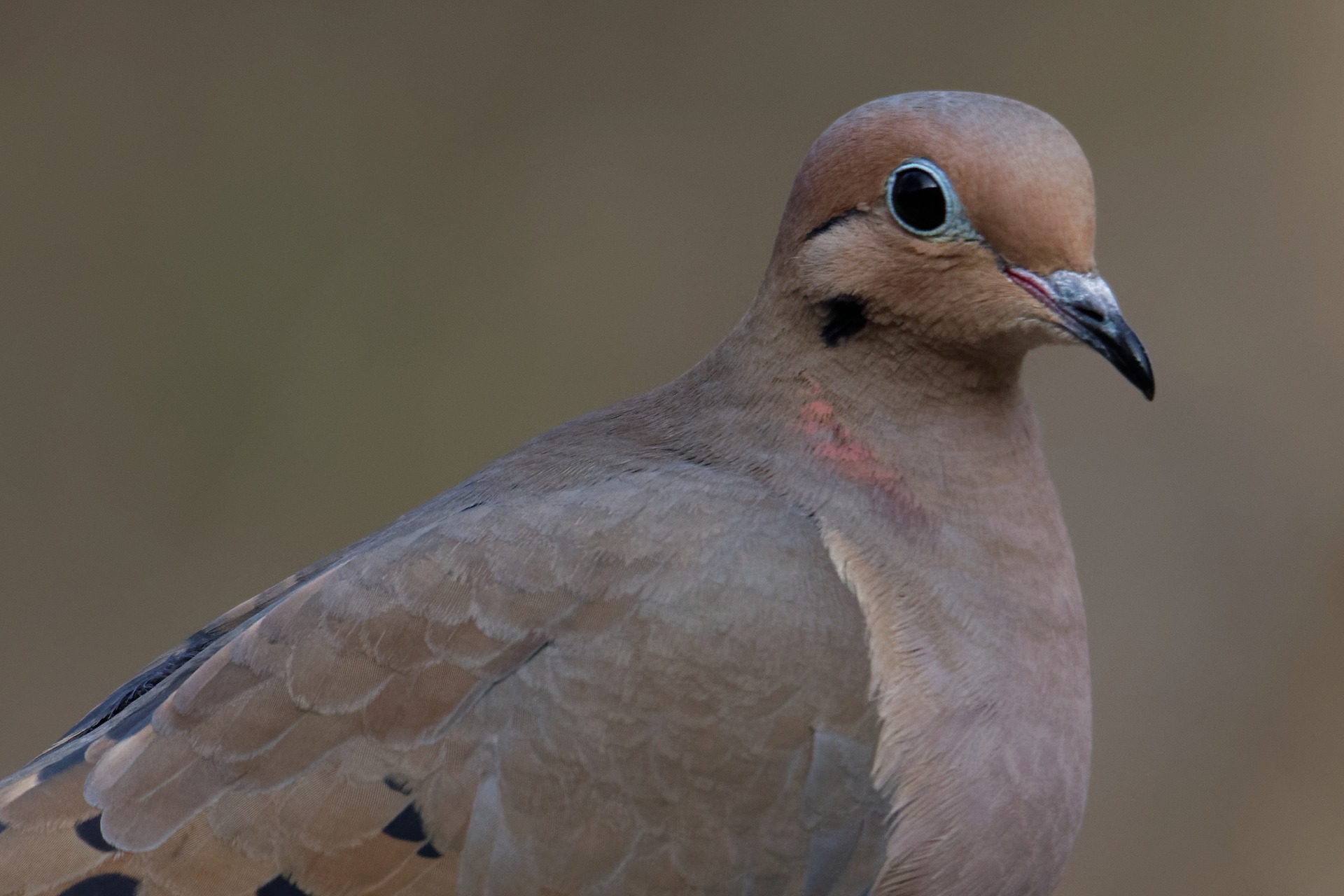
Amazing Facts About Mourning Doves A Birds Delight
1. Check the bird's coloring. Mourning Doves have a tan or grayish-brown body, with slightly lighter coloring on their chests. Their wings have several dark spots on them, often nearly black; tail feathers are usually somewhat darker than their body color, with white tips and edges.